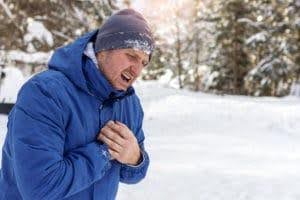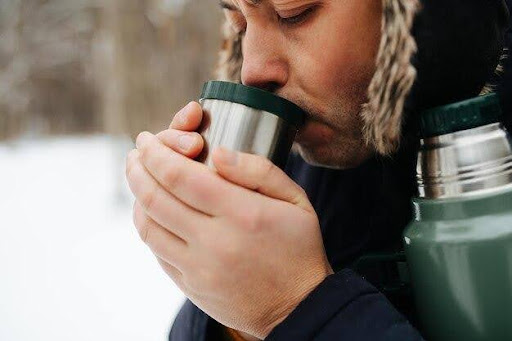Which is more dangerous: heat or cold?
I think that if you take a poll, most people would say that heat is more dangerous to health than cold, because you can protect yourself from cold by wearing warmer clothes, but heat, burning sun and stuffiness are more dangerous.
And this is generally a big misconception!
The effect of cold on the body is much more serious than it seems, and cold can be crueler to a person.
This is confirmed by statistics: annually 20 times more inhabitants of our planet die from cold than from heat.
As for cardiovascular diseases, it should be noted that extreme heat increases the risk of death, but not as much as low temperatures. Cardiologists warn: people die of strokes and heart attacks more often in winter than in summer.
According to one study whose authors analyzed data on more than 32 million cardiovascular deaths over 40 years, there were 4 times more deaths in cold weather than in heat.

Why is this happening?
Exacerbation of cardiovascular diseases in the cold season is caused by a whole complex of reasons. When the air temperature drops, vasoconstriction occurs to reduce heat loss through the skin, and a person begins to shiver – to warm up.
This response is accompanied by an increase in heart rate and blood pressure, increased platelet activation, and a cumulative increase in inflammatory markers such as C-reactive protein and interleukin-6. Collectively, these physiologic responses, especially in people with subclinical or confirmed cardiovascular disease, can trigger complications.
Other triggering factors may include decreased vitamin D levels, physical activity, seasonal depression, and dietary changes.
But how to protect yourself from a “winter” heart attack?
To reduce risks, during a sudden crisis I advise you not to go outside if possible, especially if you feel chest pain or discomfort in the cold.
But what to do if it is impossible to stay at home on this day?
In this case, it would be good to follow these 5 tips on how to better prepare for going out into the cold:
- Dress warmly. Many thin layers of clothing are better than one thick one. And don’t forget about gloves, a hat and a scarf – you can cover your mouth with them to warm the inhaled air. You can also use a mask for this.
- Bring a thermos with a warm drink. It is better to avoid drinks that increase heart rate and blood pressure. For example, from the same coffee.
- Keep time in the cold to a minimum. If you need to travel and do not have your own car, it is better to use a taxi or ask friends or relatives to give you a ride.
- Before going outside, measure your blood pressure and pulse. If they are elevated, do not go outside until the readings return to normal.

- Control stress. Prolonged stress at any time of year causes the release of hormones such as adrenaline and cortisol. These increase heart rate and blood pressure, and therefore the risk of heart attack and stroke.
Cold weather is already a risk factor for some groups of people, so they are advised to avoid the added harm of stress. Try to learn how to distract yourself from irritating factors and improve your mood. For example, when you exercise, your body releases endorphins, which improve your mood and relieve mental stress.
Just like any other season, winter has its own peculiarities and, in order to enjoy good health, it is advisable to pay attention to these few measures. That way, you will be able to fully enjoy the cold season.
Be healthy!
